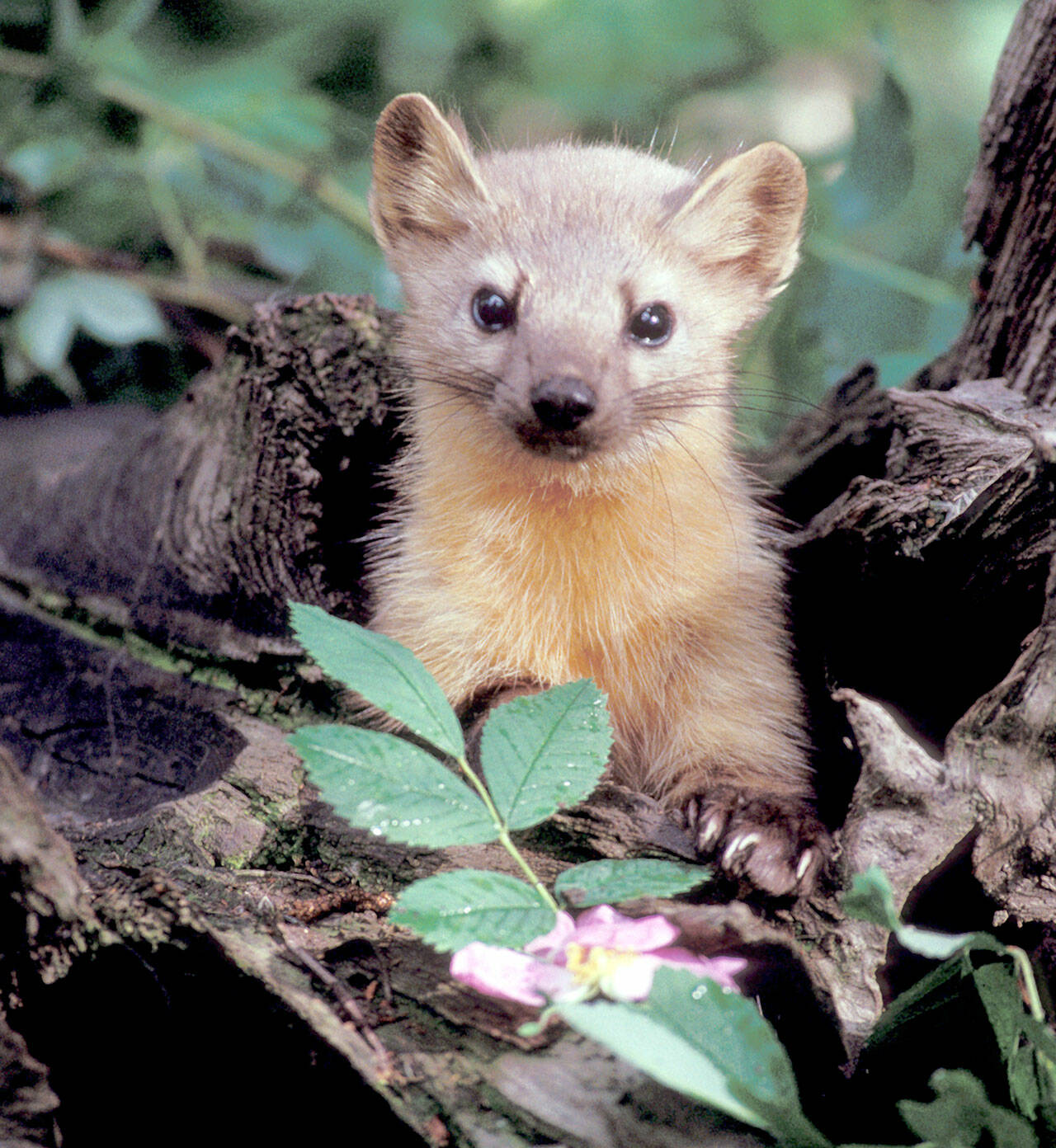OLYMPIC NATIONAL FOREST — A rare Pacific marten recorded by a motion-triggered wildlife camera is the first time the species has been recorded by a camera survey in Olympic National Forest.
As part of an ongoing collaboration, Woodland Park Zoo in Seattle partnered with Olympic National Forest last summer to install six motion-triggered camera and scent dispenser stations in the forest in hopes of detecting martens, a native carnivore thought to be occurring there in only very sparse numbers.
A month ago, the survey team returned to the station and discovered multiple photos of a single Pacific marten visiting the area of the station in January, according to a joint press release from forest and zoo officials.
Only two dozen marten sightings have been confirmed on the Olympic Peninsula in the last half century, with half of these attributed to surveys with remote cameras and scent dispensers over the last few years and all in Olympic National Park, the release said.
“The long-standing collaboration to better understand the distribution and health of the Pacific marten population on the Peninsula has been building successes over time, and Olympic National Forest staff are very pleased to be a part of such a great team,” said Betsy Howell, wildlife biologist with Olympic National Forest.
“This new record comes as our multi-partner effort begins to comprehensively survey both Olympic National Park and the National Forest for martens.”
Pacific martens (Martes caurina) are small-house-cat-sized, semi-arboreal members of the Mustelidae (weasel) family, which also includes wolverines, fishers, otters and other species.
Historically, their populations in Washington state primarily occurred in two disjunct areas, the Cascade Range and the Olympic Peninsula, officials said, adding that marten populations in the Cascades generally inhabit forests at high elevations and appear to be relatively stable.
On the Olympic Peninsula, martens once occupied a broad elevational range, from coastline to timberline. However, due to over-trapping and habitat loss in the 1900s, they appear to be gone at lower elevations and to occur at very low densities at higher elevations.
From 1968 to 2016, only nine reliable marten records were recorded on the Olympic Peninsula, despite extensive camera surveys beginning in the 1990s, officials said.
Then, in 2017, Woodland Park Zoo worked with Olympic National Forest, Olympic National Park, and U.S. Geological Survey to conduct overwinter surveys, pairing cameras with scent dispensers programmed to release a small amount of attractive lure on a regular basis.
Originally developed by the zoo in partnership with Microsoft Research and Idaho Fish and Game, these dispensers dramatically increase the period of time over which carnivore survey stations can be left operational in remote locations, up to a year, without biologists having to revisit for rebaiting or maintenance.
Between 2017 and 2019, these surveys yielded an additional 13 marten detections, all in Olympic National Park — more than doubling the number of reliable records acquired in the last half century, officials said, adding that two incidental observations were made in 2019 in Olympic National Forest.
“Martens and other carnivores are important to the community ecology of Northwest ecosystems,” said Robert Long, senior conservation scientist and director for the Living Northwest Program at Woodland Park Zoo.
”The zoo is thrilled to be able to bring our innovative survey methods to this collaborative project, and eager to help secure a future for martens on the Olympic Peninsula,” he added.
Since 2008, Olympic National Forest has been working with many partners, including Woodland Park Zoo, to survey for Pacific martens, officials said.
The effort has involved federal and state agencies, nonprofit organizations, volunteer community scientists, hundreds of hours of labor and the collection of thousands of remote camera photographs.

